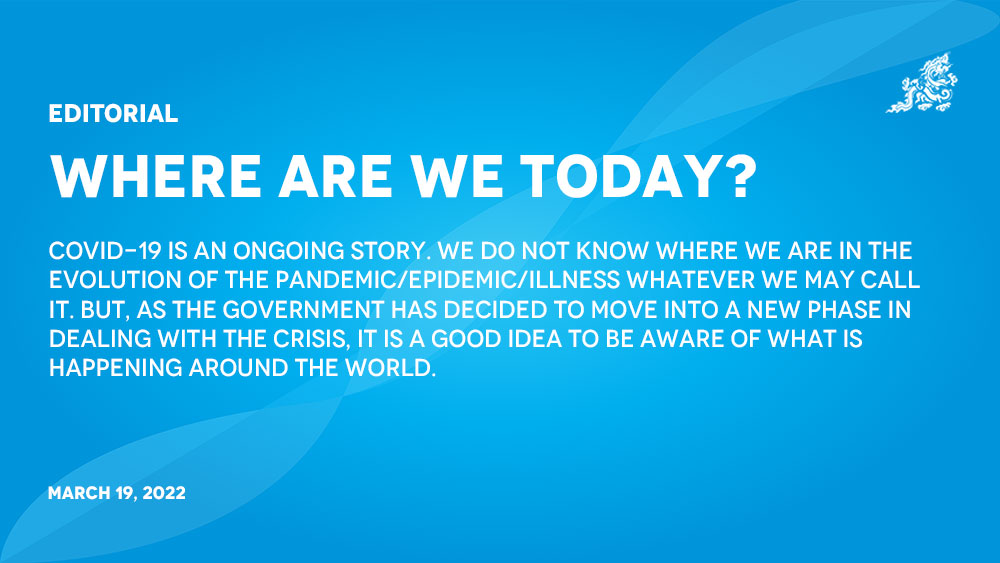Covid-19 is an ongoing story. We do not know where we are in the evolution of the pandemic/epidemic/illness whatever we may call it. But, as the government has decided to move into a new phase in dealing with the crisis, it is a good idea to be aware of what is happening around the world.
Many countries dominate the Covid-19 news in turns, Hong Kong and China being among the latest. We have learnt that the deadly surge in deaths in Hong Kong was because many of the elderly and vulnerable people had not been vaccinated. The government wasn’t prepared for the outbreak and had no contingency plan until late February. They did not anticipate what they would do when there was an outbreak in institutional settings, elderly homes in this case.
It is reassuring that Bhutan has taken a compassionate approach and focused on protecting the vulnerable. Thursday’s deaths —a 52-day old boy and a 62-year old woman — says it all.
This week China, so far a success story, reported a record number of cases and immediately placed 24 million people in quarantine. The locking down of entire province is to maintain China’s “dynamic zero-Covid” strategy that is being significantly undermined by the Omicron variant. While Chinese experts are reported to be recommending a change in strategy President Xi Jinping has stood by the “zero Covid” policy.
The numbers in countries like China and India are counted in the millions. For Bhutan, being sensitive to small numbers, even the hundreds of cases are alarming.
The US, UK, and the rest of the world are reporting similar trends and situations. Their death rates are higher than pre-Covid times and their successes reflect the efforts of their governments. Russia was high in the spread of the pandemic as well as the death tally, with strong resistance to vaccination, until the war blanketed all Covid news.
Singapore and New Zealand have transitioned away from elimination policies and it seems to work because they have detailed plans on how to manage them. And the Scandinavian countries are usually a success story because of their resources and highly educated population. The Spanish government ordered people to remain home for more than three months and prevented a collapse of the health system but has now changed its strategy to treat the next infection surge, not as an emergency but an illness that is here to stay. Portugal and the UK adopted similar strategy moving from crisis mode to control mode.
Given that the virus and its mutants have been an unpredictable adversary, Bhutan it still walking the tightrope. Even as we learn from global experiences we have much to learn from our own. We do not flatter ourselves for our successes; neither do we compare ourselves with any other country.
But we have seen reassuring vision, compassion, and success in dealing with a problem that quickly and mercilessly brought the world to its knees. Now the government needs to muster the same qualities and strengths in dealing with our own people.
Yes, it is good that we place more responsibility on the people. But no, do not expect all the people to live up to it. Today, the government is talking to different sections of society to brief them on the national Covid strategy. As we brief people on the way forward, we should listen to but not be overwhelmed by a few angry voices on social media.
A cautious and reasoned approach to problems has always been Bhutan’s strength. It still is.


